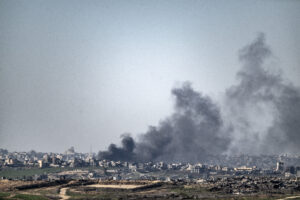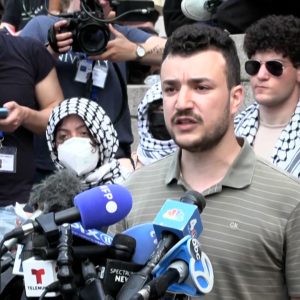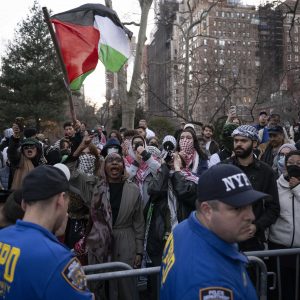‘Dark and gloomy’: Palestinians apprehensive about Gaza’s post-war future
GAZA CITY- (AA)- Abou Mohammed is an internally displaced Palestinian who fled the ongoing war on Gaza from the Bureij refugee camp to Rafah. At 60 years of age, he has experienced many wars and attacks on his native occupied land. However, he feels the current war is unprecedented in its brutality. He believes that the future of Gaza after the war is dark and gloomy. “The coming period is going to be more difficult than the previous one. No one other than Gaza’s people will rule over it. And I think that the Palestinian Authority with legitimate leadership as well as Arab countries are the ones that can rule over Gaza,” says Mohammed. “Hamas must give up on power in order to save the Palestinian people.”
Mohammed Ashour, a North Gaza resident who fled to Rafah, is more hopeful. “God willing, the Palestinian Authority will manage Gaza with a democratic government for a certain period of time until elections are held, and the ballot box will determine who will lead the future of the Palestinian people,” says Ashour.
Abou Ahmad, who also fled to Rafah, has hopes that the international community — although it has failed to stem the ongoing genocide — will undertake measures to ensure Palestinian statehood. “We hope the world will seriously think about the establishment of an independent Palestinian state with Jerusalem as its capital. We will not accept anything else in order for the wars to stop. As long as there is no Palestinian state or freedom for Palestinians, wars will keep happening, in one year, two years, five or ten years, war will happen again,” says Ahmad.
Ziad Abdo, having fled from Al-Shati refugee camp to Rafah, thinks the task ahead is the rebuilding and reconstruction of Gaza after the massive destruction of the besieged and impoverished territory. “The future will be all about reconstruction. Look at all the hospitals that they have destroyed, all the schools that they have ruined. There is nothing left. We hope that we will be able to return to Gaza in the first place,” says Abdo.
Whenever the dust settles in Gaza, the task of healing the trauma, repairing the losses and returning to normalcy will be the most challenging. For a tragedy of such a scale in a population that consists mostly of children and young people, the scars will remain for lifetimes if not generations. Healing will take concerted, communal effort across all dimensions — psychological and emotional, social and economic, while political uncertainties loom large on the gloomy horizons.










